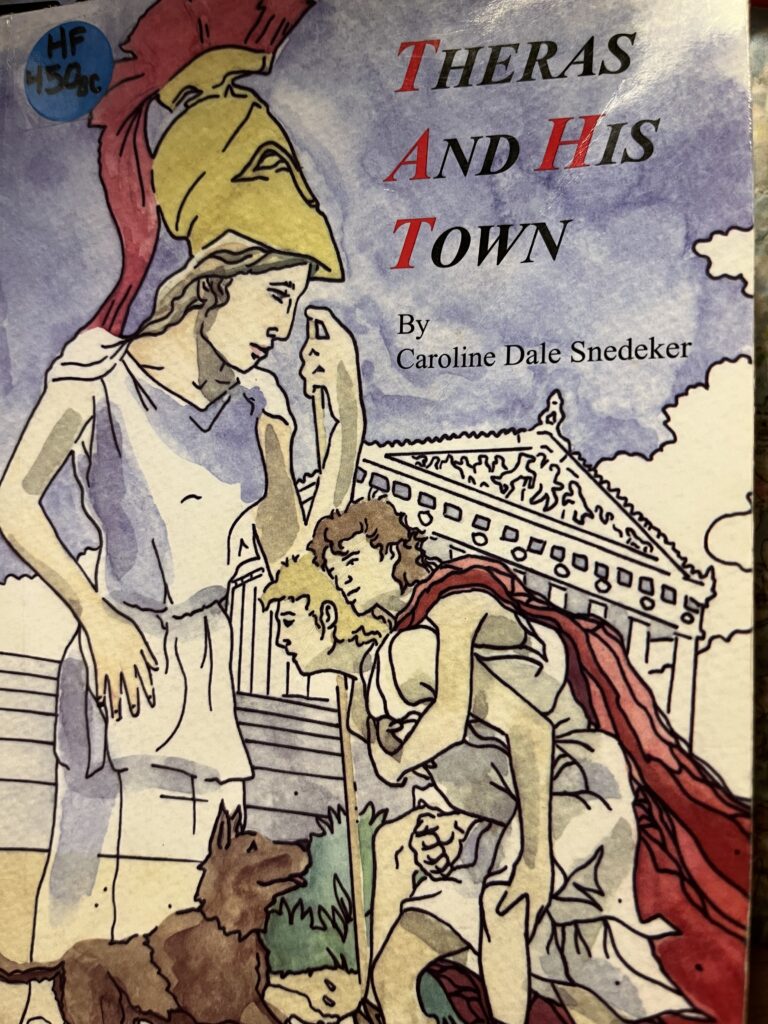This fiction book recommended for children grades 5+ begins with the author very obviously teaching her child readers about Ancient Greece and Ancient Greek culture, Athens in particular. We get short sections about how seven year old Theras of Athens goes to school, goes to the marketplace, worships Athena on the Acropolis, etc. Finally, something actually happens, and Theras is in danger. But that episode ends quickly and happily, and we are back to Theras’ daily life: Theras and his mother, Theras and his father, Theras wants to become a soldier, etc.
The book is written in three parts, and the second part is about how Theras goes to live in Sparta, obviously written to contrast life in Athens with life in Sparta. Athens is much better. Theras, and we along with him, get to experience what it’s like to be a Spartan boy. Then in part three we get a travelogue, an exciting journey but a travelogue nonetheless, through Ancient Greece with stops in Orestium, Mantinea, Corinth, the Bay of Salamis, and Eleusis before Theras and his friend Abas finally return to Athens. This third part of the book is actually the best with rather stirring adventures and mishaps and near escapes, but it still feels like a teaching book rather than a storybook.
I can see why this book is recommended in many homeschool curricula. There is a dearth of good historical fiction set in Ancient Greece. And I did enjoy learning about and being reminded of the way of life in the Greek cities of Athens and Sparta around the time of Pericles and Herodotus, who both make an appearance in the book. But to say that this book is a “living book” with excellent writing and living ideas would be a stretch. Educational, yes. Enjoyable, maybe. Life-giving, not really.
There are some ideas that parents may want to discuss with their children who are reading about Theras and Athens and Sparta and the rest. For instance, when Theras and his father visit the temple of Athena, the author tells us that the Athenians believed that Athena frequently visited and blessed her favored city of Athens and its citizens:
“All this Theras believed. But you must not think him foolish for so believing. Athena was his goddess. The wise, grown-up men in Athens believed in her, respected her, and loved her. And often they prayed to Athena so truly and thought her so good and kind that their prayers reached to the true God after all.”
I didn’t care for the pedantic style of the writing in this book, a style that I didn’t find so prominent in the other (later published) books that I have read by the same author. Theras is written for a younger audience than either The White Isle or The Forgotten Daughter, both books by Snedeker that I read and reviewed. I think Ms. Snedeker either improved in her writing skills or was just better at writing for an older audience. Theras and His Town is OK, but just not excellent or very memorable.





